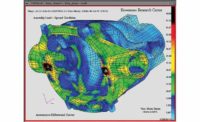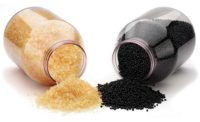Manufacturing managers are scrutinizing every aspect of their companies to find ways to shave costs. Several areas are being explored that have previously been taken for granted. One example is warranty claims.
By taking a proactive, preventative approach, companies can cut warranty return rates by 50 percent or more and save millions. The key is to make reliable products. Several manufacturers, such as Ensign Power Systems Inc. of Loveland, CO, have incorporated advanced product testing methods to achieve this goal.
Established in 1995, Ensign Power Systems makes mission-critical military, medical and industrial power supplies. Ensign’s products include high- and low-voltage uninterruptible power supplies, AC-DC converters and DC-DC converters.
The company regularly stress-tests all of its power supply models. Specifically, it performs highly accelerated stress testing (HASS) to cause product failures that would otherwise occur during the warranty period and increase the company’s warranty costs. Ensign engineers study test data to determine the cause of these failures, and then use this information to make design improvements that increase product reliability.
The company performs HASS with the QFusion system from Qualmark Corp., which also provides testing support and a global network of testing labs. Ensign chose QFusion because it is specifically designed for use with electronic and electromechanical components and assemblies. The company also likes that the system performs several stages of testing, resulting in increased productivity.
“Instead of taking 48 hours to test a product, we now accomplish the task in less than 5 hours,” says Larry Choate, vice president of Ensign Power Systems Inc. “[That’s] an efficiency improvement of more than 200 percent. There’s always a limit to how much time, footprint, headcount and manufacturing resources you can devote to product screening.”
QFusion features six tables that operate independently and offer six degrees of freedom. Each table measures 23.6 by 15.7 inches, weighs 100 pounds and has two actuators that deliver consistent vibration stresses to all test positions.
The system also produces uniform high-speed airflow to maintain thermal stability. Its operating temperature ranges from -60 to 120 C, and it has an average thermal ramp rate of 60 C per minute.
“The biggest expense you can incur is to have your product fail in the field,” says Choate. “It not only bloats your warranty costs, but also yields unhappy customers. More than 3,000 of our power supplies are used on Bradley personnel carriers in Afghanistan and Iraq. Not one has failed on the battlefield.”
For more information on accelerated stress test technology, call 888-425-8669 or visit www.qualmark.com.



